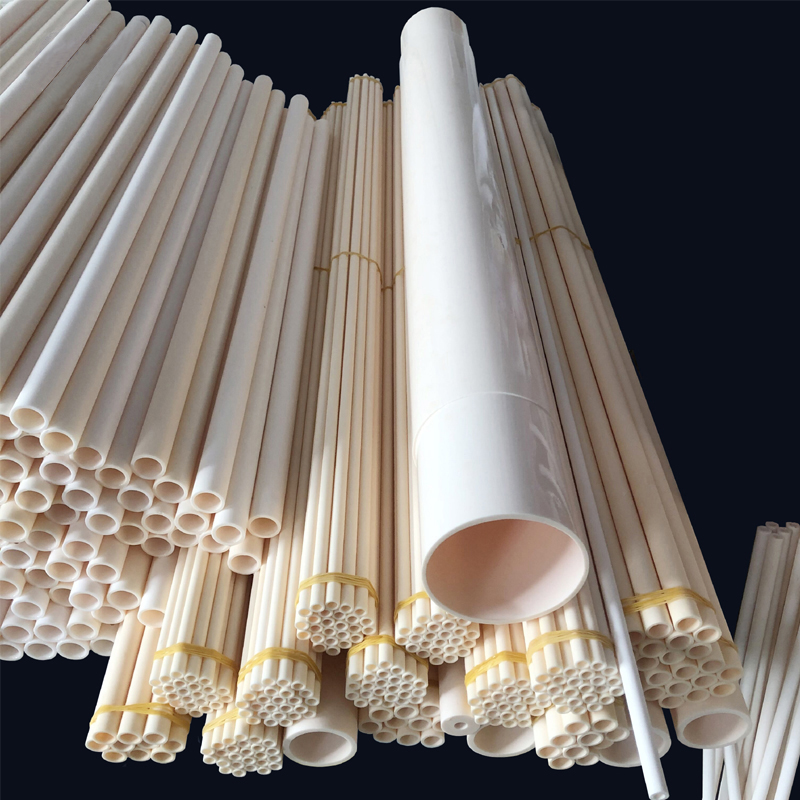Revolutionizing Industries with Durability and Performance

In today's industrial landscape, the demand for high-performance materials that can withstand extreme conditions is at an all-time high. One such material that has garnered attention across various sectors is alumina, particularly in the form of alumina pipes. Known for their excellent durability, thermal stability, and resistance to corrosion, alumina pipes are making significant contributions to industries ranging from chemical processing to energy production.
The Properties That Set Alumina Pipes Apart
Alumina, or aluminum oxide (Al₂O₃), is a ceramic material with remarkable mechanical, thermal, and electrical properties. With a melting point exceeding 1500°C, high hardness, and impressive wear resistance, alumina pipes can handle some of the most challenging environments. These pipes also boast chemical inertness, making them highly resistant to most acids, alkalis, and other corrosive substances. This chemical stability is essential in industries that deal with aggressive materials, ensuring longer service life and fewer replacements.
Alumina pipes also offer excellent thermal conductivity and electrical insulation. This makes them ideal for high-temperature applications where traditional metallic pipes would either fail or degrade over time. Industries that rely on high thermal efficiency, such as the aerospace, energy, and electronics sectors, have begun incorporating alumina pipes into their systems to enhance performance and ensure reliable operation in extreme conditions.
Industrial Applications of Alumina Pipes
1. Chemical Processing and Petrochemicals: The chemical industry often involves harsh environments where materials must endure corrosive agents and high temperatures. Alumina pipes, with their chemical inertness and thermal stability, are becoming the go-to solution for transporting aggressive chemicals. These pipes reduce the risk of leaks, contamination, and degradation, which in turn increases the safety and efficiency of processing plants.
2. Energy Sector: In power plants, especially those that operate at high temperatures like thermal and nuclear plants, alumina pipes play a crucial role in heat exchange systems. Their ability to withstand high thermal loads without deforming or reacting with surrounding materials makes them invaluable in such environments. Additionally, in renewable energy sectors like solar thermal plants, alumina pipes help transport heat efficiently, enhancing energy output.
3. Electronics and Semiconductor Manufacturing: Alumina is an excellent electrical insulator, which makes alumina pipes perfect for use in electronics and semiconductor manufacturing. In cleanroom environments, where materials are exposed to extreme temperatures and must remain non-conductive, alumina pipes provide both the thermal and electrical insulation required for advanced production techniques.
4. Aerospace and Defense: Aerospace applications demand materials that are lightweight yet capable of enduring high stress and extreme temperatures. Alumina pipes fit the bill perfectly. In jet engines and rocket systems, where temperatures can reach thousands of degrees, alumina pipes are used for their thermal properties and structural integrity.
5. Water Treatment: In the water treatment industry, alumina pipes are utilized for their resistance to corrosion, especially in systems that process seawater or other highly corrosive fluids. Alumina's high durability ensures that these pipes maintain their integrity over time, reducing maintenance costs and extending the lifespan of treatment facilities.
The Future of Alumina Pipes
As industries continue to push the limits of performance and efficiency, the demand for advanced materials like alumina will only grow. Alumina pipes are already leading the way in numerous sectors by providing a robust solution for extreme temperature, pressure, and chemical environments. Looking ahead, continued innovation in the field of advanced ceramics could further improve the performance and cost-efficiency of alumina pipes, making them even more integral to future industrial applications.
In particular, developments in nanotechnology and material science may result in alumina pipes with enhanced properties, such as even greater thermal shock resistance or improved fracture toughness. Such advancements would expand the potential applications of alumina pipes, bringing them into new and even more demanding environments.

